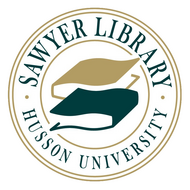
(View Complete Item Description)
Short Description:
We often make judgments about good and bad, right and wrong. Philosophical ethics is the critical examination of these and other concepts central to how we evaluate our own and each others' behavior and choices. This text examines some of the main threads of discussion on these topics that have developed over the last couple of millenia, mostly within the Western cultural tradition. Cover art by Heather Salazar; cover design by Jonathan Lashley. Join the conversation about this and the other books in the Introduction to Philosophy textbook series.
Long Description:
We often make judgments about good and bad, right and wrong. Philosophical ethics is the critical examination of these and other concepts central to how we evaluate our own and each others’ behavior and choices.
This text examines some of the main threads of discussion on these topics that have developed over the last couple of millenia, mostly within the Western cultural tradition. It considers basic questions about moral and ethical judgment: Is there such a thing as something that is really right or really wrong independent of time, place and perspective? What is the relationship between religion and ethics? How can we reconcile self-interest and ethics? Is it ever acceptable to harm one person in order to help others? What do recent discussions in evolutionary biology or have to say about human moral systems? What is the relation between gender and ethics? The authors invite you to participate in their exploration of these and many other questions in philosophical ethics.
If you are adopting or adapting this book for a course, please let us know on our adoption form for the Introduction to Philosophy open textbook series.
Word Count: 46922
ISBN: 978-1-989014-08-0
(Note: This resource's metadata has been created automatically by reformatting and/or combining the information that the author initially provided as part of a bulk import process.)
Material Type:
Textbook
Authors:
Christina Hendricks (Series Editor),
Douglas Giles,
Frank Aragbonfoh Abumere,
George Matthews (Book Editor),
Jeffrey Morgan,
Joseph Kranak,
Kathryn MacKay,
Michael Klenk,
Paul Rezkalla,
Ya-Yun (Sherry) Kao




















